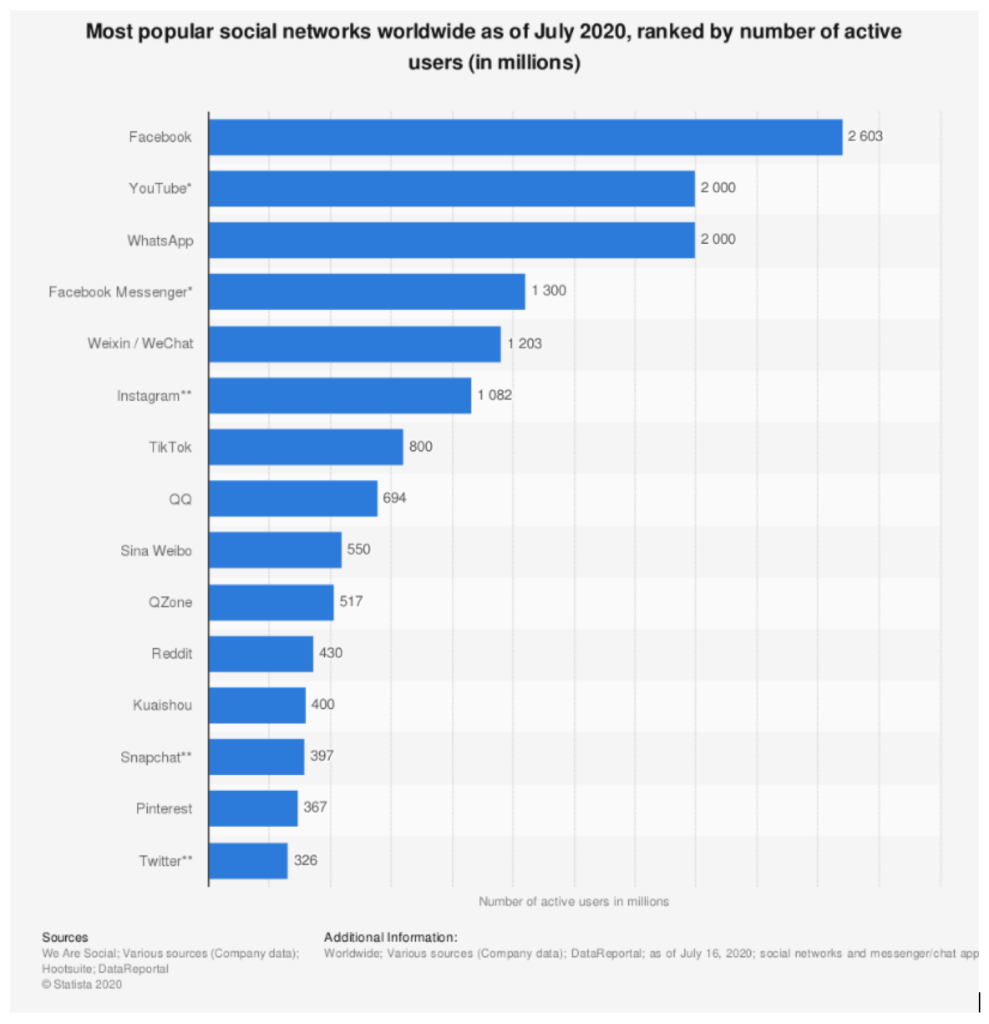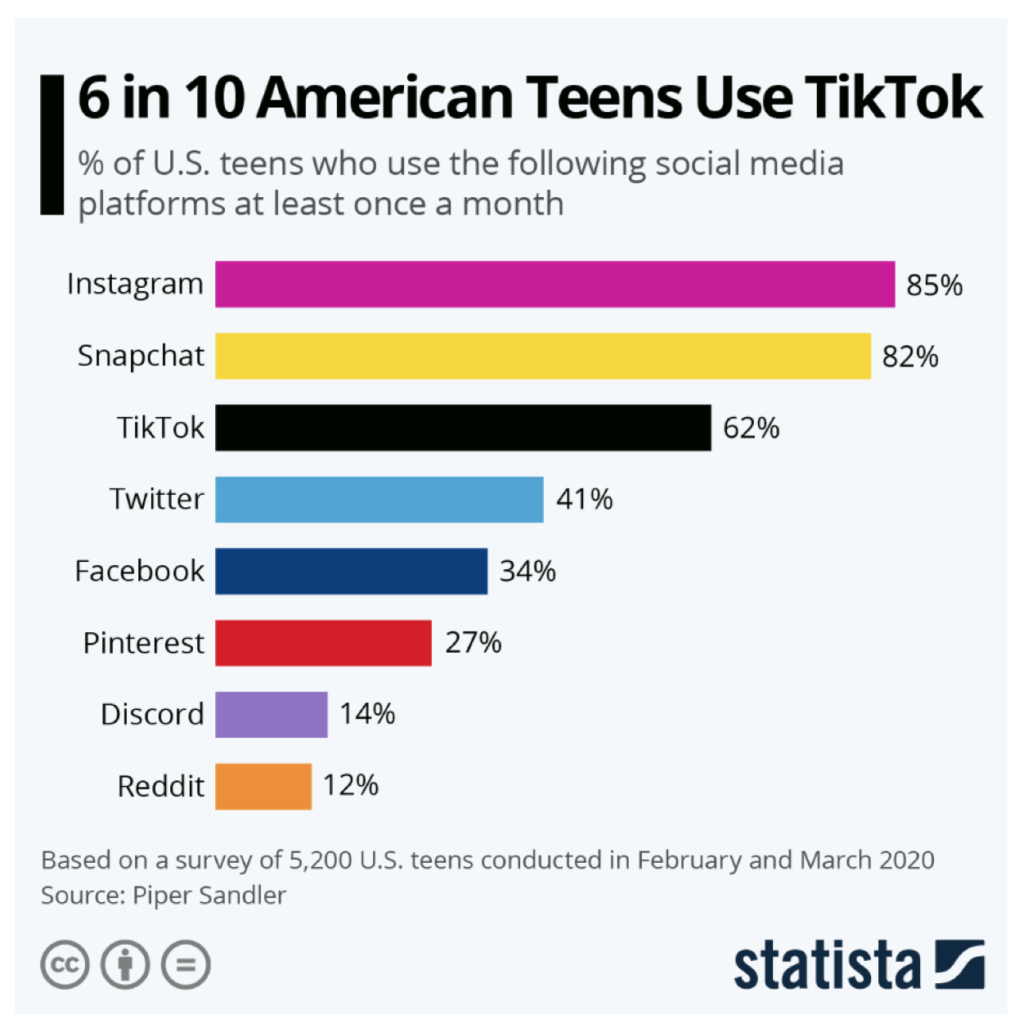What’s the knock on TikTok? And why the spat with WeChat?
The federal government recently threatened to ban several apps with ties to the Chinese government, and the State of Nebraska recently banned TikTok from all state devices such as phone, tablets, or computers. So what is the knock on TikTok?
The TikTok application allows users to lip-sync with a song, speech, or any other recording. Most often, users record themselves singing and dancing to hip tunes or recording their reaction to another TikTok video. The application is so popular it claims to have over 800 million monthly average users. Moreover, the users are more likely to interact with the app on a daily basis making it one of the most used applications worldwide and the most popular social media application in China.[1]
TikTok is owned by a Chinese firm, Bytedance. The application itself was developed by a young Chinese entrepreneur who also developed a Chinese AI platform and a popular news aggregator. The application is hugely popular in China and claims over 68% the Chinese social application traffic and further claims to be on 59% of all cell phones used in China.
A similar application that is very popular in China, but not as popular outside of China, is WeChat. WeChat, another social media application, allows users to send messages to other users. The application was also developed in China and boasts over 1.2 billion average users monthly! The adoption of WeChat outside of China has not been nearly as widespread as TikTok. WeChat has only 1.2 million users in the US, whereas TikTok has over 6 million users in the US.
So what do TikTok and WeChat have to do with users in the US?
China has some of the most restrictive controls over the use of and access to the Internet by its citizens. For instance, Chinese law requires that any information related to a Chinese citizen be stored on servers in China so that the government has access to the data if the person becomes the subject of an investigation. As an example, Apple, was forced to maintain Chinese citizen’s iCloud backups on servers in China. In addition to the iCloud backups, Apple is required to maintain the encryption keys on Chinese servers. Apple was then required to partner with a Chinese company for the iCloud backups, but the servers themselves are maintained by a company with ties to the state government.[2]
The fact that the encryptions keys are kept on severs with ties to the Chinese government would lead to the assumption that the government is, or has capability of, monitoring, investigating, or reviewing any information in the Chinese iCloud at any time.
China also requires all citizens to register with all social media applications using their real names. The users are allowed to use pseudonyms while online and for postings, but the initial registration with the application or service must be in the users’ true name. This requirement has had a chilling effect on social media and has led to speculation that the Chinese government is seeking to punish those who would post or publish information critical of the government. In fact, the Chinese government recently forced Bytedance to increase their human monitors of social media from the current number of 6,000 to a total of 10,000.
WeChat is also systematically reviewed by the government and offending content, both inside and outside of China, is regularly reviewed, flagged, and removed. The monitoring of posts on applications outside of China are also used to feed AI censors within China A private group known as Citizen Lab recently tested WeChat. The lab sent pictures it knew would be censored from a person outside of China to someone in China. The picture was censored and removed. But even more interesting, when the same picture was later sent between two users within China the picture was also censored. The experiment led the lab to conclude that the messages outside of China were being used to feed the censorship of information inside of China using AI.
Finally, here in the US, the Federal Trade Commission (FTC) fined TikTok in 2019 for illegally collecting personal information on children.[3] TikTok is estimated to be used by 6 in 10 teens in the US. That information collected could potentially impact 60% of US households! Needless to say, this is a large volume of information on the American public being collected and analyzed by the Chinese government.
The Chinese laws which require the storage of information in their country allows the Chinese government to review and mine the information for intelligence. Personal, as well as business information, on WeChat and TikTok is most certainly reviewed for personal information, information critical of the Chinese government, business secrets, client and customer information, intellectual property, patent and design documents, and other proprietary information. The access of such sensitive information can have serious consequences for US based businesses and for the security of the US.
[1] https://www.businessofapps.com/data/tik-tok-statistics/
[2] https://money.cnn.com/2018/02/28/technology/apple-icloud-data-china/index.html
[3] https://www.ftc.gov/news-events/press-releases/2019/02/video-social-networking-app-musically-agrees-settle-ftc




